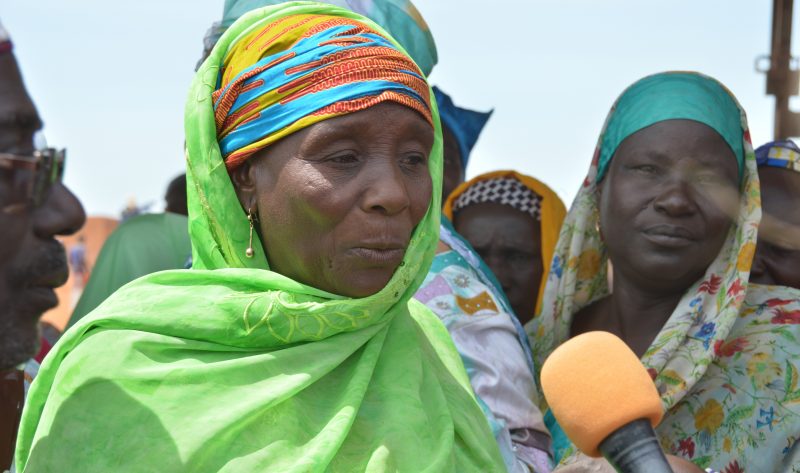
MCA-Niger
A woman from the village of Margou explains how road rehabilitation under the MCC compact will improve her life.
What can be done to stimulate economic growth to provide jobs and food for Nigeriens?
During my recent visit to Niger, I had the opportunity to sit down with three MCA-Niger board members who are working to answer that question: Mme. Aïchatou Boulama Kané, the Minister of Planning; Mme. Halima Fodi, a respected civil society representative; and Mr. S.G. Hachimou Abdoulkarim, Secretary General of the Ministry for the Promotion of Women. All three agreed that in a country where only 25 percent of the population is literate, the key to slowing Niger’s population growth and increasing food security is education.
Most girls marry in their early teens and have multiple children by the age of twenty. This prevents many of them from staying in school. The board members said studies show that for each additional year a young woman remains in school, she will likely produce one fewer child. Based on that evidence, these experts have directed their focus to keeping girls in school. In addition, they are implementing programs that provide vocational training and family planning resources for young women already married with children.
In Niger, the majority of women work in agriculture. For this reason, the Millennium Challenge Corporation’s $437 million compact with Niger emphasizes women’s and youth employment training that will equip them with the skills they need to yield more productive crops and enable them to market those crops more efficiently.
Women in Niger need opportunities to move up the value chain, to fuel their aspirations and provide for their families. That is what this MCC compact will do. For example, as part of this Niger compact, we are exploring opportunities to train women to be certified seed distributors, creating greater opportunities to diversify their incomes and increase production.
Another way for women to move up in society is to own their own land. In Niger, women and young men have limited ownership and control over land, especially in irrigated perimeters. Through a participatory and inclusive land inventory process, the MCC compact will work with local authorities and land commissions to identify land that can be made available for women and youth groups.
At the ceremony to mark the launch of the compact, I spoke with Nigerien women who work in agriculture. They told me how the rebuilding of a nearby road will greatly increase their potential to move their produce to market. It will cut their transit time, enabling them both to make more money and to get home in time to tend to family needs.
These women are the face of a brighter economic future for agriculture in Niger. And, with intelligent and passionate leaders like Kané, Fodi and Abdoulkarim, MCC’s compact will improve education and agricultural production for millions of Nigeriens.

